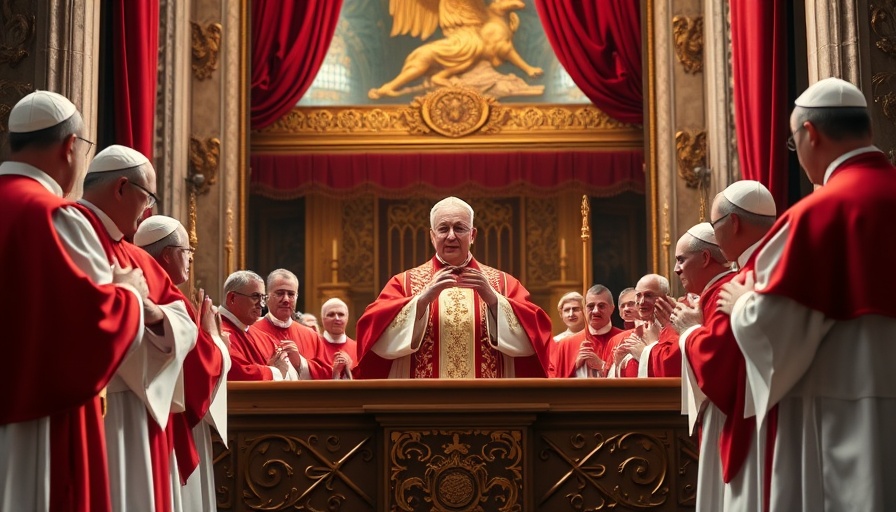
Pope Leo XIV's Vision for a Modern Catholic Church
In a significant shift for the Catholic Church, Pope Leo XIV has pledged to advance the values laid out by his predecessor, Pope Francis, focusing on a more inclusive, accessible, and responsive church. In his inaugural address to the Roman Catholic cardinals, Leo XIV underscored his commitment to a mission centered on compassion and outreach, particularly towards the marginalized and vulnerable. He emphasized the importance of collaboration among church leaders as a way to foster stronger community bonds.
Listening to the Voices of the Marginalized
Pope Leo XIV has made it clear that one of his foremost goals is a "loving care for the least and the rejected." This notion aligns closely with Francis' vision in "Evangelii Gaudium," which set a tone for the church to redefine its priorities amid contemporary societal challenges. Leo made it evident that the church must act as a beacon for those who feel left behind. This stems from the belief that every individual deserves support and representation, regardless of their social standing.
Engaging with Emerging Technologies
As the world undergoes rapid technological changes, Leo XIV has pointed out the necessity of recognizing the implications of these advancements on human dignity. In particular, he highlighted the impact of artificial intelligence on labor and justice. The pope expressed concerns that while technology can enhance lives, it also presents challenges that could infringe upon workers' rights and societal equity as it did during past industrial revolutions.
A Call for Courageous Dialogue
One of the core pillars of Leo's agenda is fostering "courageous and trusting dialogue with the contemporary world." He encourages the church to open its arms wider to discussions that encompass modern ethical dilemmas and social issues. By doing this, he hopes to engage an increasingly diverse and secular audience, showing them the relevance of the church's message in today’s context.
Strengthening Church Leadership and Community Ties
Pope Leo XIV's vision includes emphasizing "growth in collegiality" among church leaders. This term refers to the collaborative nature of church governance, where bishops and cardinals work closely together, reflecting a more unified front. This collaborative approach is believed to help in rectifying past missteps and cultivate a church that listens to both its priests and laypeople.
The Legacy of Pope Leo XIII
In adopting the name Leo XIV, the pope nods to the significant contributions of Pope Leo XIII, who addressed social justice at the dawn of the industrial age in his encyclical, "Rerum Novarum." In echoing his predecessor, Leo XIV is aiming to tackle similar complexities today, albeit through the lens of our digital age, acknowledging both the threats and opportunities that arise from major societal transformations.
The Future Direction of the Catholic Church
As Pope Leo XIV sets forth his objectives, it becomes clear that his leadership is poised to embrace the teachings of Pope Francis while also adapting to new realities. The challenges posed by technology and globalization are immense, yet they also offer unprecedented opportunities for outreach and connection. Embracing these dual aspects will be critical for the church's evolution and relevance.
In summary, Pope Leo XIV's commitment to continuing the mission of inclusivity, justice, and modern relevance represents a promising chapter for the Catholic Church. The church’s ability to adapt and listen to its community will ultimately shape its legacy in the years to come.
 Add Row
Add Row  Add
Add 




 Add Row
Add Row  Add
Add 

Write A Comment